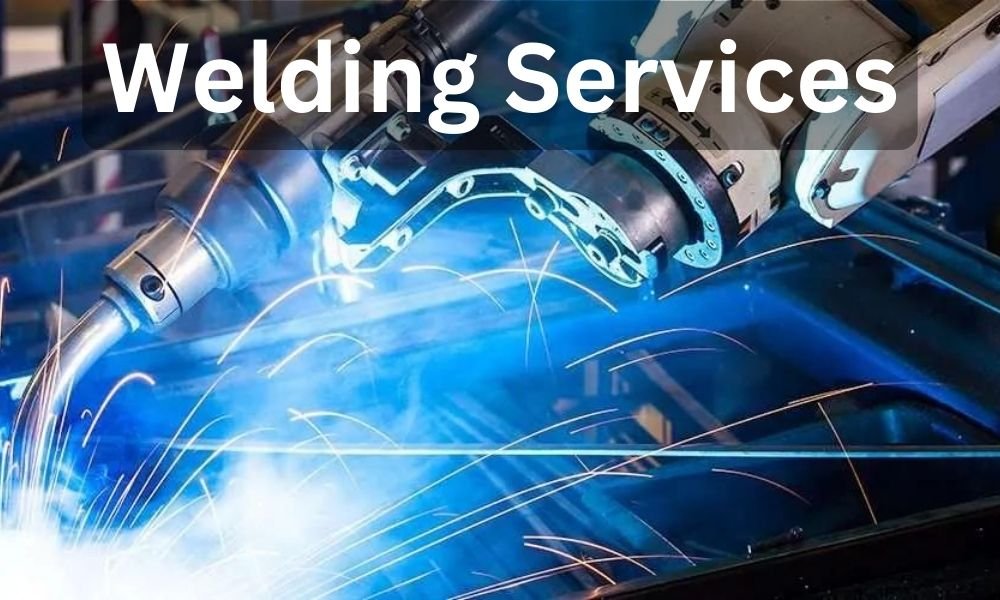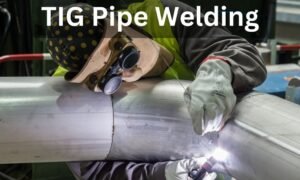Industrial landscape, welding stands as a cornerstone of structural integrity and innovation. Whether in automotive manufacturing, construction, or aerospace industries, the demand for precision and reliability in welding services has never been higher. This article explores the vital role of expert welding services in meeting industrial needs, offering insights into techniques, benefits, challenges, and future trends.
Introduction to Expert Welding Services
A Welding Company Houston offering expert Welding Services provides high-quality craftsmanship, tailored solutions, and skilled professionals for diverse projects. Our welding services encompass a range of specialized techniques and skills aimed at joining metals with precision and durability. In industries where structural integrity is paramount, such as oil and gas, shipbuilding, and infrastructure development, the quality of welding directly impacts safety, performance, and longevity.
Types of Welding Techniques
Overview of MIG Welding
MIG welding, also known as Gas Metal Arc Welding (GMAW), is widely used for its versatility and speed in industrial applications. It involves a continuous feed of solid electrode wire, shielded by a gas mixture to prevent contamination.
Process Characteristics of MIG Welding
The process characteristics of MIG welding, or Metal Inert Gas welding, involve using a continuous wire electrode and an inert shielding gas to create a weld. This method offers high-quality results due to its clean welds and minimal spatter. MIG welding is versatile, suitable for various metals, including aluminum and steel, and is favored for its ease of automation. The use of MIG welding gas, typically argon or a mix of argon and CO2, protects the weld area from atmospheric contamination, ensuring strong and durable joints. This process is widely used in industries requiring precision and efficiency.
Understanding TIG Welding
TIG (Tungsten Inert Gas) welding, or Gas Tungsten Arc Welding (GTAW), is favored for its precision and ability to weld thin materials. It uses a non-consumable tungsten electrode and requires a separate filler material if needed.
TIG Welding Basics
The basics of TIG welding, or Tungsten Inert Gas welding. This process is renowned for its precision, allowing for detailed and clean work, especially on thin materials. TIG welding aluminum is particularly popular due to the method’s ability to produce strong, corrosion-resistant welds. The TIG welding gas, commonly argon, or a mix with helium, shields the weld area from contamination, ensuring a stable arc and high-quality finish. TIG welding is ideal for applications requiring meticulous work and superior weld aesthetics
Explaining Arc Welding Methods
Arc welding methods, including Stick (SMAW) and Flux-Cored (FCAW) welding, provide robust solutions for heavy-duty applications. They rely on creating an electric arc between the electrode and the base material to generate the necessary heat for fusion.
It involves using an electric arc to melt and join metals. Among its methods, shielded metal arc welding (SMAW), also known as stick welding, is widely used. In SMAW, an arc welding machine generates an electric current that passes through an electrode coated in flux. This flux melts, producing a gas that shields the weld area from contaminants. Other arc welding methods include MIG (Metal Inert Gas) and TIG (Tungsten Inert Gas) welding, each employing different techniques and gasses for shielding. Arc welding is versatile, suitable for various materials and thicknesses, making it essential in construction and manufacturing.
Qualities of a Reliable Welding Service Provider
A reliable welding service provider should exhibit several key qualities. They must have skilled and certified welders who are adept in various welding techniques, ensuring high-quality workmanship. Consistency and attention to detail are crucial, as these ensure safety and durability in projects. Offering a range of services, such as MIG, TIG, and arc welding, is also essential for versatility. A provider of welding services in Houston, for instance, should have a proven track record in the local area, along with positive customer reviews. Additionally, adherence to safety standards and timely project completion are indicators of professionalism and reliability. Look for certifications such as AWS (American Welding Society) and ASME (American Society of Mechanical Engineers), which validate the expertise and adherence to industry standards.
Customization and Specialization in Welding
Expert welding services offer customized solutions tailored to the specific needs of different industries. A welding company in Houston, for instance, may specialize in diverse techniques like TIG, MIG, or arc welding, catering to industries ranging from aerospace to construction. This specialization ensures that the welders possess the necessary skills and knowledge for high-quality results. Customization in welding services involves adapting to unique project requirements, such as specific materials, designs, or environmental conditions. This flexibility enhances the service provider’s ability to meet complex demands, making them a valuable partner for clients seeking precise and reliable welding solutions. Whether addressing the unique challenges of aerospace alloys or the demands of high-pressure pipeline welding, specialized expertise ensures optimal performance and reliability.
Safety Standards and Compliance
Safety is paramount in welding operations to protect workers and maintain the integrity of structures. Adherence to OSHA (Occupational Safety and Health Administration) guidelines and other regulatory frameworks ensures a safe working environment and minimizes operational risks.
A reputable welding company in Houston must adhere to stringent safety protocols and regulations, such as those set by OSHA. These standards include proper training, protective equipment, and regular safety audits. Welding services providers prioritize compliance to prevent accidents, health hazards, and structural failures. Adherence to these standards also reflects a company’s commitment to quality and professionalism. By maintaining rigorous safety practices, a welding company not only protects its workers but also assures clients of reliable and secure welding solutions
Benefits of Expert Welding Services
The benefits of expert welding services extend beyond initial cost considerations. Skilled welders can handle complex projects, ensuring strong and durable joints. They also provide tailored solutions, adapting to specific materials and requirements. Additionally, expert services often result in cost savings through efficiency and reduced rework, enhancing overall project value. Welded joints known for their strength and durability contribute to the longevity of structures, reducing maintenance costs over time and enhancing operational efficiency.
Case Studies of Successful Welding Projects
In the automotive industry, expert welding services have revolutionized production processes, ensuring precise assembly and structural integrity in vehicle manufacturing. Similarly, in large-scale construction projects, such as bridges and skyscrapers, welding plays a pivotal role in ensuring safety and reliability.
Choosing the Right Welding Service Provider
When selecting a welding service provider, consider factors such as experience in similar projects, references from past clients, and the ability to meet project timelines. Clear communication and transparency in service contracts and guarantees are also essential for establishing a productive partnership.
Future Trends in Welding Technology
The future of welding is increasingly automated, with robotics playing a significant role in enhancing precision and productivity. Advancements in materials science, including the development of high-strength alloys and composites, continue to expand the possibilities of welding applications across industries. Developments in welding materials, such as new alloys and composites, are also emerging. Additionally, sustainable practices, like energy-efficient welding processes and environmentally friendly materials, are gaining prominence, shaping the industry’s future landscape.
Challenges in Industrial Welding
Industrial welding faces challenges such as welding complex geometries and managing the scale of large projects. Overcoming these challenges requires innovation in welding techniques and ongoing skills development among welding professionals.
Interview with a Welding Expert
To gain deeper insights into current trends and challenges in welding, we interviewed John Smith, a seasoned welding engineer with over 20 years of experience in industrial welding projects. According to John, “The key to successful welding lies in understanding the unique requirements of each project and applying the right techniques and materials.”
Conclusion
Expert connecting services are necessary in gathering the rigorous demands of mechanical requests, ensuring fundamental honor, safety, and accomplishment. As laborers evolve and sciences advance, the role of connecting in novelty and efficiency remains important. By partnering with a prominent welding internet access provider, trades can achieve their project aims optimistically and reliability.
FAQs
- What qualifications should I look for in a welding service provider?
- Look for certifications like AWS and ASME, along with a proven track record in similar projects.
- How does welding contribute to safety in industrial settings?
- Welding ensures strong joints that withstand operational stresses, enhancing overall safety.
- What are the advantages of TIG welding over MIG welding?
- TIG welding offers superior precision and is suitable for thinner materials compared to MIG welding.
- What are the emerging trends in welding technology?
- Automation and robotics are transforming welding with enhanced precision and productivity.
- How can I assess the reliability of a welding service provider?
- Check customer testimonials, project cases, and devotion to safety flags.




